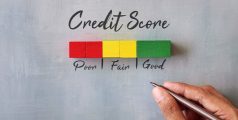
How to Check the Credit Card Due Date?
Posted on Friday, June 28th, 2024 | By IndusInd Bank
When you stay on top of your credit card payments, you can maintain a healthy financial profile. Being on top of repayments before your credit card due date can help you avoid late fees, penalties, and negative impacts on your credit score.
This article will guide you on how to check the credit card due date and explain how the billing cycle works.
Ways to Check the Credit Card Due Date
Here are some ways to find out your credit card due date:
1. Credit Card Statement
Every month, your bank sends you a credit card statement. It includes transactions you have made, the total amount you owe, and the payment due date. Check your statement to keep track of the payment amount and due date.
2. Online Banking
Log in to your online banking account and go to the credit card section. You will see the options to view your current balance, available credit, and credit card due date.
3. Mobile Banking App
Log in to your bank’s mobile app. After you log in, you can access your credit card due date with a few taps. You can also set up notifications and reminders for upcoming due dates.
4. Customer Service
You can call the customer service number of your bank. They can provide the necessary information about the credit card due date. They can also guide you on how to know the due date of your credit card via different methods.
5. Email and SMS Alerts
Many banks offer email and SMS alert services. Sign up to receive notifications about your credit card due date and other upcoming payments. Getting notifications is a convenient way to stay updated instead of logging in to your account.
Now that you know how to check the credit card due date, let us also understand the billing cycle of credit cards.
Understanding the Credit Card Billing Cycle
Here’s a breakdown of how the billing cycle works:
1. The Billing Cycle Begins
The billing cycle begins on the statement closing date and lasts about 30 days. It can vary across banks. All transactions made during this period are recorded and added to the next month’s statement.
2. The Bank Generates the Statement
Your bank generates a statement with multiple details at the end of the billing cycle. It includes the transactions, fees, interest charges, the total amount due, and the credit card due date.
3. The Grace Period Begins
The grace period starts on the day on which the statement is generated and ends on the payment due date. Pay your balance in full within this period to avoid interest charges. The grace period lasts 20-25 days and varies across banks.
4. Payment of the Minimum Amount
Your statement will also state the minimum amount you need to pay. Pay the minimum amount to keep your account in good standing. However, you must pay more or the full balance to avoid high interest charges and reduce debt faster.
Also Read: A Comprehensive Guide to Credit Card Grace Period for Consumers
Conclusion
It is crucial to know how to check the due date of your credit card to pay your bills on time. Timely bill payments and responsible credit management improves your credit score and financial profile. These aspects, in turn, can provide you with better loan terms in the future.
IndusInd Bank provides its credit cardholders with user-friendly digital platforms. It makes it easy to check due dates and set up payment reminders.
With lifetime-free IndusInd Bank Credit Cards like Legend Credit Card, Platinum RuPay Credit Card, Platinum Visa Credit Card, and Platinum Aura Edge Credit Card, you can minimise your total costs while you enjoy lifestyle benefits. Apply for a lifetime free credit card with IndusInd Bank!
Apply now!
Disclaimer:
The information provided in this article is generic and for informational purposes only. It is not a substitute for specific advice in your circumstances. Hence, you are advised to consult your financial advisor before making any financial decision. IndusInd Bank Limited (IBL) does not influence the views of the author in any way. IBL and the author shall not be responsible for any direct/indirect loss or liability incurred by the reader for making any financial decisions based on the contents and information.



 Offers
Offers Rates
Rates Debit Card Related
Debit Card Related Credit Card Related
Credit Card Related Manage Mandate(s)
Manage Mandate(s) Get Mini Statement
Get Mini Statement
 categories
categories Bloggers
Bloggers Blog collection
Blog collection Press Release
Press Release


